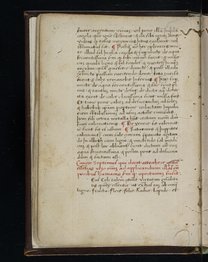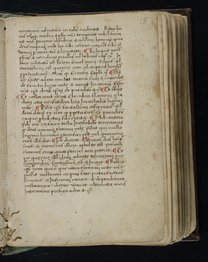Liber de secretis naturae seu de quinta essentia
The Book of the Secrets of Nature or of the Quintessence
- 1498

Rights
Download all 380 images
PDFZIPof full-sized JPGsDownload selected image
Small JPG1200 x 1513px — 388 KBLarge JPG2880 x 3632px — 2.3 MBFull-sized JPG3456 x 4358px — 3.2 MBOriginal fileTIFF — 3456 x 4358px — 43.2 MBThe Liber de secretis naturae seu de quinta essentia is the central work in the Pseudo-Lullian Alchemical corpus, a large collection of as many as 143 different texts that circulated as the work of Raymond Lull (Ramon Llull or Raimundus Lullus; 1232-1316), the famous Catalan philosopher, theologian, and mystic. Notably, the author of this work used large sections of an earlier work by John of Rupescissa (c. 1310-c. 1362), De consideratione quintae essentiae omnium rerum, which links alchemy with medicine by describing the process of producing aqua vitae (Latin for "water of life") by the distillation of wine; per Rupescissa, the resulting substance could prevent corruption and decay, and thus prevent illness and premature aging. The Liber de secretis naturae, in contrast with Rupescissa’s text, is not primarily interested in the medical application of the quintessence, but instead interprets these ideas as part of an alchemical system that includes medicine, the transmutation of metals, and the artificial production of precious stones.
| Property | Value |
|---|---|
| Author | |
| Place of creation | |
| Format | |
| Genre | |
| Extent |
|
| Language | |
| Subject | |
| Rights | Public Domain Mark 1.0 |
| Credit line |
|
Institutional location
| Department | |
|---|---|
| Collection | |
| Physical container |
|
Learn More
Related Items
Cite as
Pseudo-Llull. “Liber De Secretis Naturae Seu De Quinta Essentia,” 1498. MS 7. Science History Institute. Philadelphia. https://digital.sciencehistory.org/works/82ul4ik.
This citation is automatically generated and may contain errors.






















































